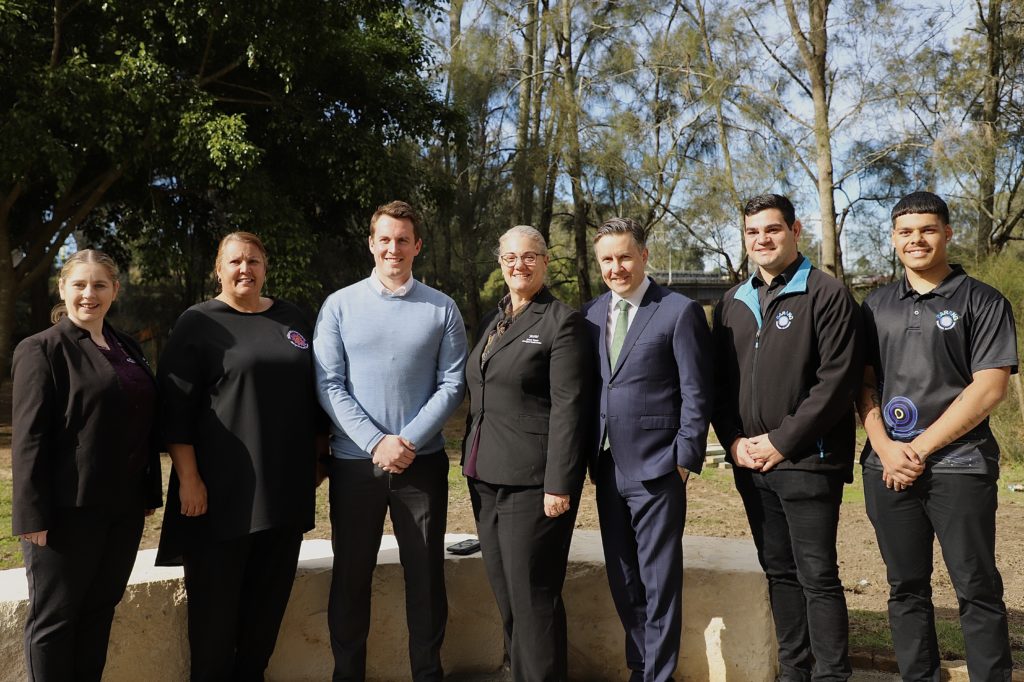Health Minister Mark Butler was on the Central Coast on Tuesday, June 27, to talk about the coming referendum on the Voice to Parliament and how it might affect health policy.
Accompanied by Member for Robertson Gordon Reid, he toured the Yerin Eleanor Duncan Service at Wyong.
Butler said the Central Coast had real challenges with the availability and the delivery of healthcare services.
“We can alleviate those challenges by, for example, allowing the entire region to recruit overseas trained doctors, a really important change that we made very soon after coming into government, a change that was strongly advocated by Gordon Reid,” he said.
“Also, policies that were the centrepiece of our Budget in May to lift bulk billing rates (will help) because we know unfortunately, that the Central Coast, and the Hunter Valley for that matter, have some of the lowest bulk billing rates in the country.
“So tripling the bulk billing incentive, lifting the Medicare rebate by the highest amount in more than 30 years, all of these things are going to improve the availability and the affordability of healthcare services on the Central Coast.”
Butler said a Voice to Parliament would be especially important in the area of health.
“More than 30 years since the High Court first swept aside the legal fiction that this was somehow vacant land when Europeans arrived more than 200 years ago, recognition is long overdue in the country’s founding document,” he said.
“(This is a chance) to vote to give shape to that recognition through a Voice to Parliament, to listen to allow the Parliament and members of the executive to listen to the voices of First Nations people about issues that particularly impact them.
“I can’t think of an area of policy where listening to those voices will be more important than in health.
“For far too many years, the Australian Parliament, Health Ministers of both political persuasions, and the community more broadly, have been confronted with frankly appalling statistics about the health gap between Indigenous and non-Indigenous Australians.
“Indigenous Australians are seven times more likely to die of kidney failure than non-Indigenous Australians.
“The suicide rate among young First Nations people is twice that of young non-Indigenous people.
“And while we were able to get the rate of cancer deaths down over the past decade by 10 per cent across the country, cancer deaths rose by 12 per cent for Indigenous Australians.
“And with the best of intentions, substantial investment, terrific work by organisations like Yerin, still, we are not seeing the gap close at all.
“We have to be honest and say that the current approach just isn’t working.
“We can give Aboriginal and Torres Strait Islander people of our country longer, healthier and happier lives … and that means listening to First Nations people about ideas of prevention and early intervention that will be engaged by their communities.”

Butler said an audit was underway on the Closing the Gap initiative.
“A very clear commitment within that Plan was to ensure, as far as possible, that services for Indigenous Australians were delivered by Indigenous Australians,” he said.
“So that audit will allow us, as a government, to step through all of the services and where there’s an appropriate transition that can take place between a non-Indigenous service organisation to an Indigenous service organisation.”
Reid said the Voice would allow government to hear from Aboriginal communities about the laws and the issues affecting them.
“The team at Yerin do such fantastic work with Aboriginal communities here – the more than 17,000 people who identify as Aboriginal and Torres Strait Islander here on the Central Coast,” he said.
“The work they do is absolutely phenomenal in not just providing that frontline medical care, but also providing that preventative health, that social, emotional and spiritual wellbeing and support to make sure that people are cared for in a holistic manner.
“Speaking as a doctor, one of the most powerful things that people can do, whether it’s in the clinical setting or in the community setting, is listening.
“More often than not, you can find out what’s wrong with the patient and develop a preliminary diagnosis or provisional diagnosis through the patient history alone.
“And that’s what the Voice is all about: making sure we’re listening to community about the issues and the laws that will affect them and provide better outcomes.”
Terry Collins


